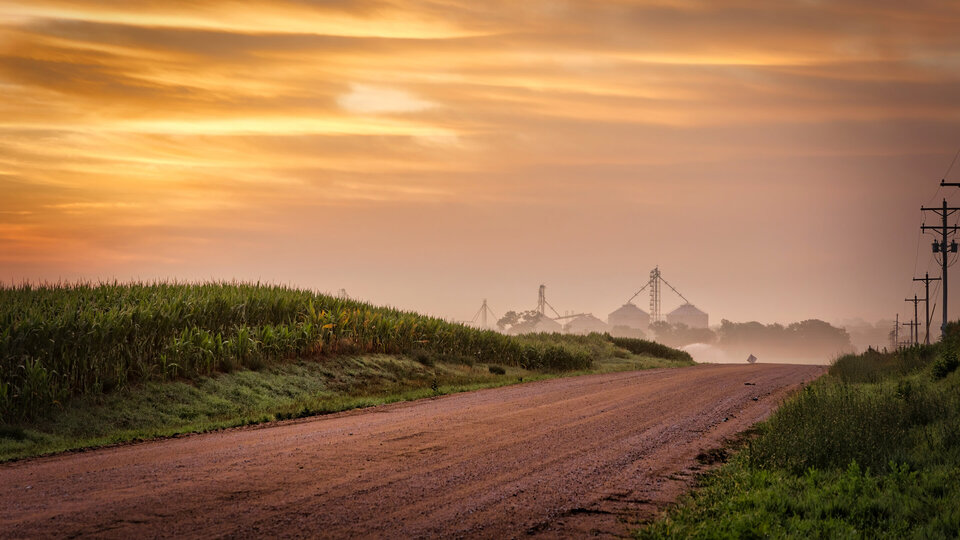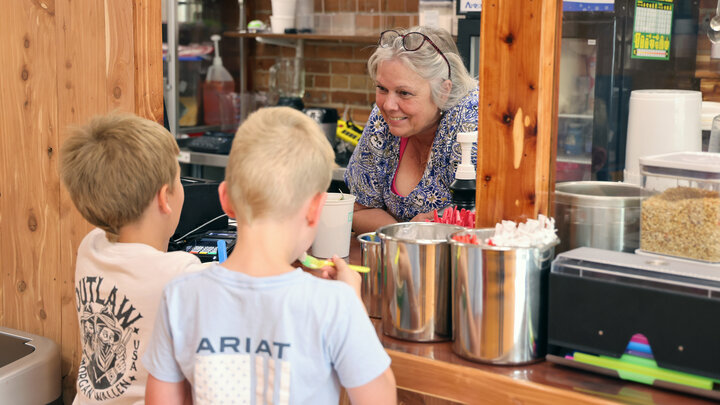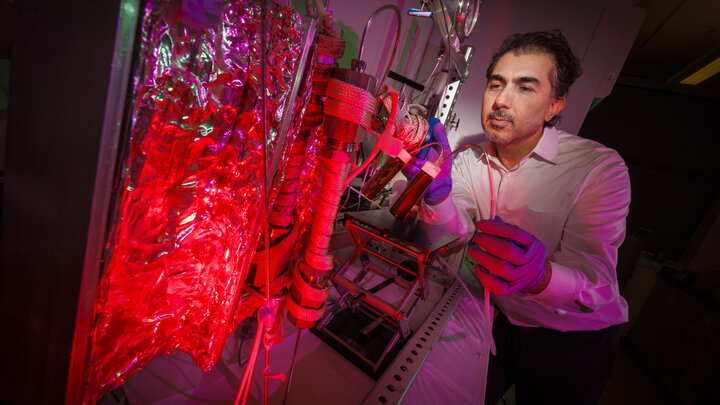Feature stories/news
Local Interest
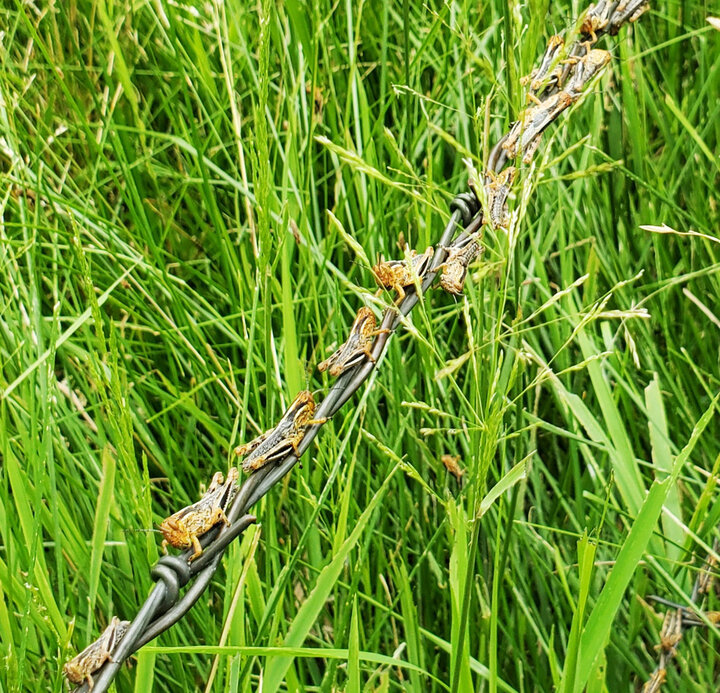
Nebraska Extension hosts webinar series on Controlling Invasive Weeds and Pests in Pastures
By Natalie Jones | IANR Communications
Nebraska Extension will offer a six-part webinar series in February 2026 designed to equip ranchers, landowners, and natural resource professionals with the latest research and management strategies for tackling invasive weeds, woody encroachment, and pasture pests.
“Controlling Invasive Weeds & Pests in Pastures” will be held over three weeks, with webinars taking place on Mondays and Thursdays — Feb. 9, 12, 16, 19, 23 and 26 — from 6:30 to 7:45 p.m. MT (7:30 to 8:45 p.m. CT).
The series brings together Nebraska Extension specialists and the Nebraska Department of Agriculture to address several of the most pressing challenges in pasture and rangeland management. Topics include statewide regulations for pesticide application and noxious weed control, identification and treatment of invasive broadleaf weeds, woody encroachment management, herbicide options for invasive winter annual grasses such as cheatgrass, new and emerging weed species to watch for, and guidance on when grasshopper populations warrant treatment.
Speakers include Dr. Nevin Lawrence, Dr. Mitch Stephenson, Extension educators Ben Beckman, Bethany Johnston, Gary Stone and Dave Boxler, along with representatives from the Nebraska Department of Agriculture.
Registration is $75 per person, and includes a mailed packet of key reference materials: the 2025 UNL Guide to Weed Management, Weeds of the Great Plains, and a booklet of NebGuides and Extension Circulars focused on invasive species.
Registration closes Jan. 26 to ensure participants receive their materials before the first webinar.
Those interested may register at https://cvent.me/MOo0ka.
For more information, contact your local Nebraska Extension office or visit https://extension.unl.edu/.

ServSafe® Food Protection Manager Certification Training offered in Scottsbluff
Nebraska Extension will host a ServSafe® Food Protection Manager training on Tuesday, February 11, 2026, from 9 a.m. to 6 p.m. at the Panhandle Research, Extension & Education Center in Scottsbluff. This one-day training helps food service managers, owners, supervisors, and other key staff strengthen food safety practices and meet certification expectations for restaurants, food trucks, and other food establishments.
“Don’t miss this opportunity to enhance your food safety knowledge and meet Nebraska restaurant certification expectations,” said Ashley Fenning, Nebraska Extension. “ServSafe training helps food establishments build confidence, protect customers, and support consistent, safe operations.”
The ServSafe Food Protection Manager course is a nationally recognized program designed to reduce the risk of foodborne illness and improve safe food handling practices in professional foodservice settings. Participants will learn best practices for preventing contamination, maintaining proper time and temperature controls, supporting employee health and hygiene, and creating safe systems for cleaning, sanitizing, and storage. The training also prepares participants to successfully complete the proctored ServSafe Food Protection Manager Certification Exam.
Nebraska has updated food safety provisions through recent legislative action, including updates aligned with the FDA Food Code through the Nebraska Pure Food Act (LB245, 2025), reinforcing the importance of trained leadership within food establishments.
Register online at: https://go.unl.edu/panhandleservsafe2026 or call the Morrill County Extension Office at 308-262-1022 and ask for Ashley Fenning. Training cost is $160 per participant and can be paid on the day of the class. Make checks payable to: University of Nebraska–Lincoln.
For more information, contact Ashley Fenning at the Morrill County Extension, call 308-262-1022, or email astevens4@unl.edu.
ServSafe Food Manager courses offered in 2026 for the Panhandle include:
- March 24 - from 9 a.m. to 6 p.m. at the Cheyenne County Fairgrounds in Sidney
- July 9 - from 9 a.m. to 6 p.m. at the Prairie Winds Community Center in Bridgeport
- October 6 - from 9 a.m. to 6 p.m. at the Box Butte County Extension Office in Alliance
- November 3 - from 8 a.m. to 4 p.m. at the Panhandle Research, Extension & Education Center in Scottsbluff
Register online at: https://go.unl.edu/panhandleservsafe2026 for all classes.
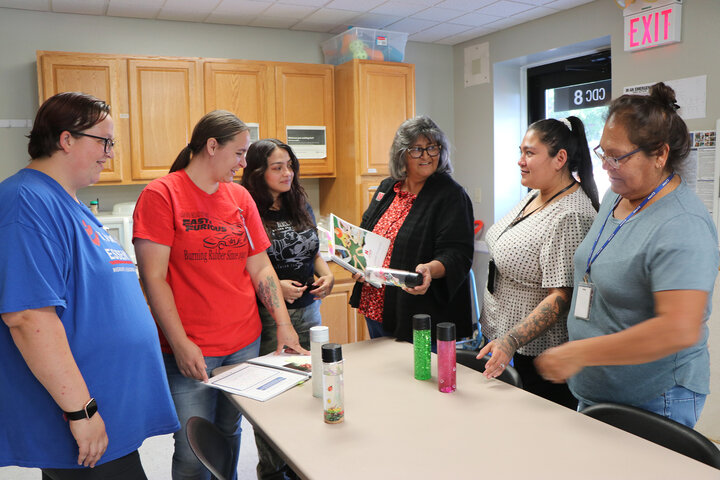
Nebraska Extension early childhood educator passionate about building strong families
By Chabella Guzman, PREEC Communications
Many Nebraska Extension educators are called to their positions. Jackie Guzman is no exception. She is the Nebraska Extension early childhood educator and lead educator in the Nebraska Extension Engagement Zone 1, located at the University of Nebraska-Lincoln Panhandle Research Extension and Education Center in Scottsbluff.
“It is a purpose, a calling for me. This is where we need to start with parents and children to build a solid foundation, where the children are ready to learn and more apt to graduate,” she said.
Among the programs Guzman provides to professionals is the CHIME (Cultivating Healthy Intentional Mindful Educators) program. It is an eight-week program that focuses on the person working with young children, providing them with the skills to work effectively with children by first helping themselves through mindfulness.
Guzman has developed and implemented programs for non-traditional audiences while incorporating traditional 4-H curriculum and methodologies for youth. One such program is embryology, which includes Extension 4-H educators. “I provide incubators, and the farmers provide eggs. There is a curriculum with activities for elementary school children and early childhood/preschool programs,” she said.
